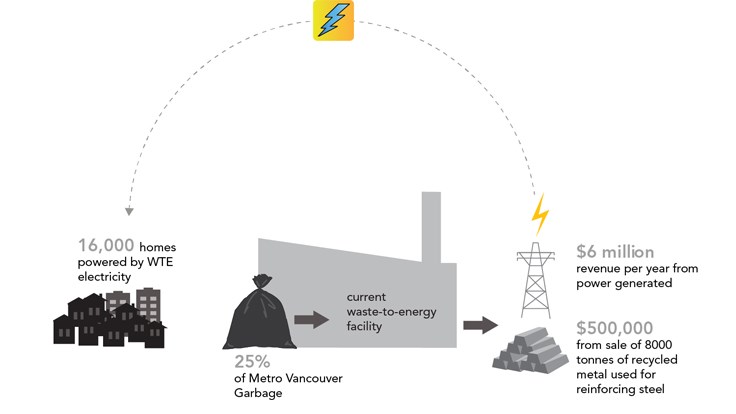Metro Vancouver, Burnaby, British Columbia, Canada, has seen operating costs increase by 6 percent in the last five years, a report by the Vancouver Sun says. Reasons for this increase include falling metal prices and less garbage.
The report says operating costs for the plant totaled in $21.27 million last year with an additional $1.59 million in debt charges. This is up from $17.6 million in 2011.
Ash treatment, environmental upgrades and reduced revenues due to the loss of stream sales in 2011 and lower B.C. Hydro rates in 2014 are cited for the increased in a staff report. The report also says steam and electrical revenues dropped by 41 percent over the last five years.
Falling metal prices also had an effect, which reduced revenues at the plant,Paul Henderson, manager of Metro’s solid waste division, told The Vancouver Sun. The total tonnage at the plant was also down from 281,159 in 2011 to 256,402 tons in 2015, the report says.
The company plans to seek bids for a contingency landfill that will take up to 50,000 tons of its trash in 2017, according to the Vancouver Sun. The additional dump is needed to accommodate the additional garbage that can’t be handled by the Burnaby incinerator or the Vancouver landfill in Delta, until Metro decides whether or not to move ahead with plans to build one or more incinerators in or outside the region.
The plans have been on hold after trash volumes dropped dramatically, but will be reconsidered by the board later this year or in early 2017, Henderson said to the Vancouver Sun.




